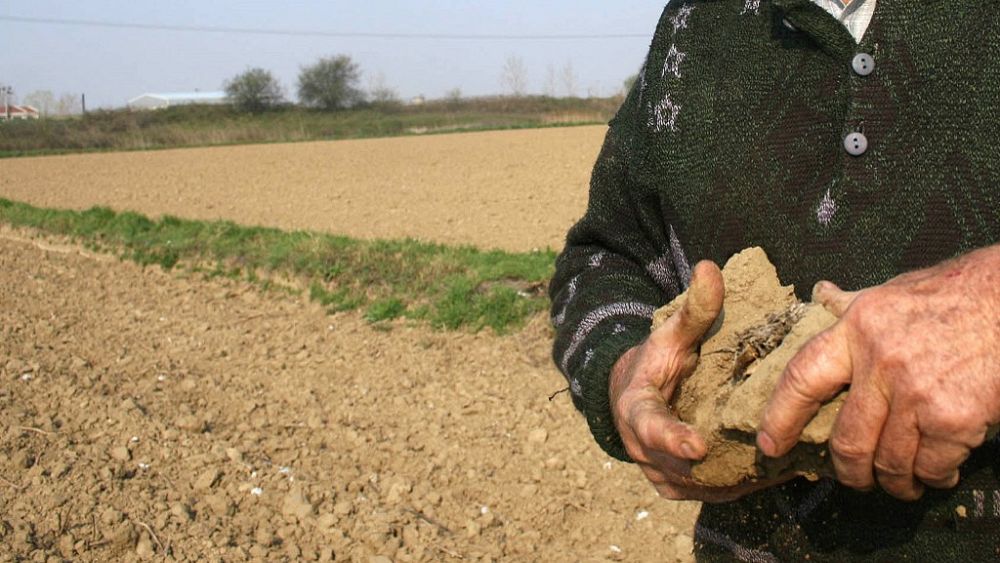
Kos is one of the most popular Greek islands with tourists and each year around 1.3 million people choose to go there for their holidays.
Greece’s prolonged heat waves may prompt visitors to stay away in the future in July and August.
Even worse, local farmers and producers are already suffering the effects of the higher temperatures in the form of severe droughts and less rain.
The increasingly mild winters also mean the olive trees don’t have as many cooler days which they need to grow properly.
“Climate change has very significantly affected the production of olive oil, not only on our island but also throughout Greece,” one olive harvester said.
“In the coming year, we expect production to drop to around 30%, at best 40% of last year’s production and this is mainly due to climate change,” Ioannis Papadimitriou added.
The island’s beekeepers don’t have it any better.
The mild winters “fool” the bees into thinking it’s spring. So they don’t rest and many flowers bloom too early which means they’re most of them are dormant by June.
“We’ve had some crazy weather this year and we’re seeing the effects. They appear now that production has begun. We had a lot of rain at the wrong time and now a lot of heat,” said honey producer Anthouli Dionysia.
It’s a worrying time for her: “I see that the crop is not as expected. Initially in quantity, in a little while we will also check the quality,” she said.
The wine industry is trying to make a name for itself beyond the island, but the heat increases are changing the chemical composition of the grapes which changes the taste of the wine – and not for the better.
Luckily there are some ways to minimise the damage but it will take more investment to pay for the greater expertise.
“Climate change really ‘touches’ the wine and not only in Kos but everywhere. Yet, modern cultivation techniques and scientific knowledge limit the damage. We need the help of experts and great care in the vineyard,” said winemaker Mary Triantafyllopoulou.